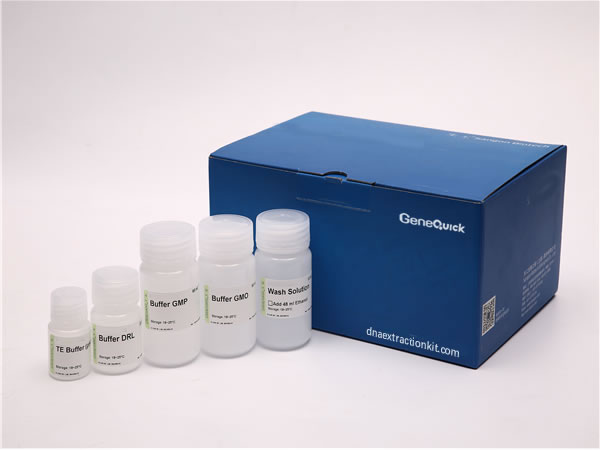What is Agricultural DNA Extraction Kit for Plant Stems?
The Agricultural DNA Extraction Kit for Plant Stems is a specialized laboratory tool designed to isolate DNA from the stem tissues of various plants. Plant stems, which provide structural support and transport nutrients, contain cellular material that holds genetic information. Extracting DNA from stems can be challenging due to their tough cell walls and high polysaccharide content, but this kit simplifies the process using optimized reagents and protocols. It is widely used in agricultural research, crop improvement programs, and genetic studies to analyze traits like disease resistance, growth patterns, and environmental adaptability.
This kit is part of a broader category of DNA extraction tools tailored for agricultural applications, focusing specifically on stem samples to ensure high yield and purity. By enabling efficient DNA isolation, it supports downstream analyses such as PCR, sequencing, and genotyping, which are essential for advancing sustainable farming and biotechnology innovations. Whether for academic research or industrial agriculture, this kit offers a reliable method to unlock genetic insights from plant stems.

Technical Specifications
| Model | Method | Sample | Application | Format | Workflow |
|---|---|---|---|---|---|
| AG-C-STM-20R | Column | Stem | Agriculture | 20R | Manual |
| AG-C-STM-50R | Column | Stem | Agriculture | 50R | Manual |
| AG-C-STM-100R | Column | Stem | Agriculture | 100R | Manual |
| AG-C-STM-200R | Column | Stem | Agriculture | 200R | Manual |
| AG-C-STM-8R | Column | Stem | Agriculture | 8R | Semi-automated or Full Automation |
| AG-C-STM-24R | Column | Stem | Agriculture | 24R | Semi-automated or Full Automation |
| AG-C-STM-48R | Column | Stem | Agriculture | 48R | Semi-automated or Full Automation |
| AG-C-STM-72R | Column | Stem | Agriculture | 72R | Semi-automated or Full Automation |
| AG-C-STM-96R | Column | Stem | Agriculture | 96R | Semi-automated or Full Automation |
Working Principle
The principle behind the Agricultural DNA Extraction Kit for Plant Stems involves a combination of mechanical disruption and chemical lysis to break down the rigid cell walls of stem tissues. Initially, samples are homogenized to release cellular contents, followed by the addition of lysis buffers that degrade proteins and other contaminants. Silica-based technology or similar methods are then used to bind DNA, separating it from impurities through washing steps.
Elution buffers finally release pure DNA into a solution ready for analysis. This process leverages the affinity of DNA for specific matrices under optimized pH and salt conditions, ensuring efficient recovery without compromising quality. The kit's design minimizes handling time and maximizes throughput, making it accessible for high-volume agricultural labs.
Performance
The Agricultural DNA Extraction Kit for Plant Stems delivers high-performance results, consistently producing DNA with excellent purity and integrity. It is designed to handle the unique challenges of stem tissues, such as lignin and cellulose content, which can inhibit extraction. The kit efficiently removes contaminants, resulting in DNA that is suitable for sensitive applications like next-generation sequencing and quantitative PCR. Users can expect high yields even from small or difficult samples, making it ideal for field studies or limited material scenarios.
Performance is validated through rigorous testing, ensuring reproducibility across different plant species, including cereals, vegetables, and woody plants. The kit minimizes degradation and maintains DNA stability, which is crucial for long-term storage and repeated analyses. Its robust design reduces the risk of cross-contamination and user error, providing dependable outcomes for both novice and experienced researchers in agricultural genomics.
Application
This kit is primarily used in agricultural and botanical research for extracting DNA from plant stems to study genetic diversity, gene expression, and hereditary traits. Applications include crop breeding programs aimed at developing disease-resistant or drought-tolerant varieties, as well as ecological studies monitoring plant populations. It is also valuable in forensic botany for identifying plant species from stem evidence and in educational settings for teaching DNA extraction techniques.
Beyond research, the kit supports industrial applications such as quality control in seed production and compliance testing for genetically modified organisms (GMOs). Its versatility makes it suitable for a wide range of plants, from food crops like corn and wheat to ornamental species, enabling advancements in sustainable agriculture and environmental conservation.
Core Features and Advantages
Core features of this kit include user-friendly protocols that require minimal training, reduced processing time compared to traditional methods, and compatibility with automated systems for high-throughput applications. It offers high scalability, from small-scale extractions to large batches, and includes all necessary reagents pre-measured for convenience. The kit is optimized for plant stem-specific challenges, such as high polysaccharide and secondary metabolite content, ensuring reliable performance.
Advantages include cost-effectiveness, with no need for expensive equipment like centrifuges in some versions, and environmental friendliness due to reduced chemical waste. It provides consistent results across diverse plant types, enhancing research reproducibility. The kit also supports downstream molecular techniques without additional purification, saving time and resources in agricultural genomics workflows.